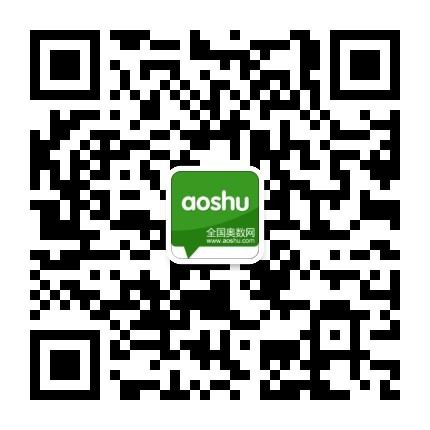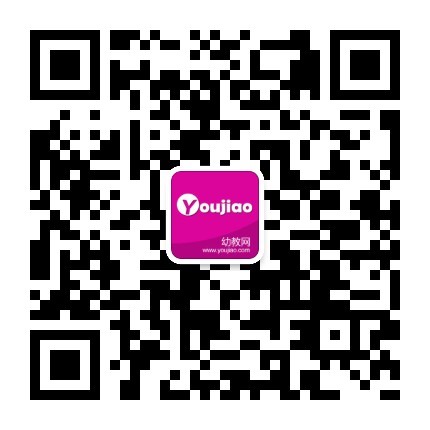ĪĪĪĪėūĮ╠ŠW(w©Żng)š¹└Ē┴╦ĻP(gu©Īn)ė┌2018─Ļą┬╩└╝o(j©¼)ėóšZ╬Õ─Ļ╝ē╔ŽāįĪČ What Do You Want to Be in the Future?ĪĘĮ╠░ĖįO(sh©©)ėŗ(j©¼)���Ż¼ŽŻ═¹ī”Į╠ĤĮ╠īW(xu©”)ėą╦∙Ä═ų·���Ż¼āH╣®ģó┐╝ĪŻ
ĪĪĪĪę╗���ĪóĮ╠ė²─┐ś╦(bi©Īo)Ż║
ĪĪĪĪ1.Į╠ė²īW(xu©”)╔·Å─ąĪśõ┴ó▀h(yu©Żn)┤¾Ą─└ĒŽļ���Ż¼▓ó×ķų«ĖČ│÷ūį╝║æ¬(y©®ng)ėąĄ─┼¼┴”���ĪŻ
ĪĪĪĪ2.Į╠ė²īW(xu©”)╔·ę¬┴óķLųŠŻ¼▓╗ę¬│Ż┴óųŠ���ĪŻ
ĪĪĪĪČ■���Īóų¬ūR─┐ś╦(bi©Īo)Ż║
ĪĪĪĪŻ©ę╗Ż®╗∙ĄA(ch©│)─┐ś╦(bi©Īo)Ż║
ĪĪĪĪ1.īW(xu©”)┴Ģ(x©¬)▒Šå╬į¬å╬į~Ż║start, future, vacation, IT, enough, artist, enjoy, astronaut.
ĪĪĪĪ2.šŲ╬šę╗░ŃīóüĒĢr(sh©¬)Ą─Šõą═ĮY(ji©”)śŗ(g©░u)╝░Ųõ╣”─▄���ĪŻ
ĪĪĪĪ3.┬Āšf║═ķåūx└ĒĮŌGrand Theatre ųąĄ─šZčį▓─┴Ž���Ż¼▓ó─▄Ė∙ō■(j©┤)ų„įÆŅ}
ĪĪĪĪīæ6~8ŠõįÆĪŻ
ĪĪĪĪ4.šŲ╬šį¬ę¶ę¶ś╦(bi©Īo) /i:/, /I/���ĪŻ
ĪĪĪĪ5.└╩ūxRhyme���Ż¼šZę¶ĪóšZš{(di©żo)���Īó╣Ø(ji©”)ūÓ╗∙▒Šš²┤_���ĪŻ
ĪĪĪ���ĪŻ©Č■Ż®░l(f©Ī)š╣─┐ś╦(bi©Īo)Ż║
ĪĪĪĪ1.─▄ė├ėóšZüĒ▒Ē▀_(d©ó)ūį╝║Ą─└ĒŽļŻ¼▓óšf├„įŁę“���ĪŻ
ĪĪĪĪ2.─▄Ė∙ō■(j©┤)īŹ(sh©¬)ļHŪķørīæę╗Ę▌ĻP(gu©Īn)ė┌ūį╝║└ĒŽļĄ─ąĪČ╠╬─���Ż¼▓óį┌ąĪĮM╗“░Ó╝ē└’Į╗┴„ĪŻ
ĪĪĪĪ╚²���Īó─▄┴”─┐ś╦(bi©Īo)Ż║
ĪĪĪĪīW(xu©”)╔·─▄ė├Ė„ĘNšZčįą╬╩Į▒Ē▀_(d©ó)ūį╝║���Īó═¼īW(xu©”)Īó┼¾ėč╗“ĖĖ─ĖĄ─įĖ═¹���ĪŻŻ©ŠC║Žąį─▄
ĪĪĪĪ┴”Ż¼┐┌Ņ^���Īó╣PŅ^���Īóķåūx└ĒĮŌėąĻP(gu©Īn)éź╚╦│╔▓─Ą─╣╩╩┬���Ż¼▓óę¬×ķīŹ(sh©¬)¼F(xi©żn)ūį╝║Ą─└ĒŽļČ°
ĪĪĪĪ┼¼┴”ĪŻŻ®
ĪĪĪĪ╦─���ĪóŪķĖą���Īó▓▀┬į║═╬─╗»Ą╚─┐ś╦(bi©Īo)Ż║
ĪĪĪĪ1.ŪķĖąæB(t©żi)Č╚Ż║īW(xu©”)Ģ■(hu©¼)ĻP(gu©Īn)ą─ĖĖ─Ė╗“╦¹╚╦ĪŻ
ĪĪĪĪ2.īW(xu©”)┴Ģ(x©¬)▓▀┬įŻ║┼ÓB(y©Żng)īW(xu©”)╔·║Žū„īW(xu©”)┴Ģ(x©¬)���Īó╣▓═¼═Ļ│╔╚╬äš(w©┤)Ą─łF(tu©ón)ĻĀ(du©¼)ģf(xi©”)ū„Š½╔±���ĪŻ
ĪĪĪĪ3.╬─╗»─┐ś╦(bi©Īo)Ż║┴╦ĮŌ╬„ĘĮć°╝ęéź╚╦│╔▓─Ą─Įø(j©®ng)ÜvĪŻ
ĪĪĪĪ╬Õ���ĪóĮ╠īW(xu©”)┘Yį┤Ż║
ĪĪĪĪStudent’s Book 5B P1~P7, cassette 5A Unit 1, Student’s Work Book 5B P1~P9, Pictures of signs, Teaching transparencies.
ĪĪĪĪ┴∙���ĪóĮ╠īW(xu©”)Ģr(sh©¬)ķgŻ║Ų▀šnĢr(sh©¬)ĪŻŻ©Ųõųą5šnĢr(sh©¬)ą┬╩┌���Ż¼2šnĢr(sh©¬)ŠÜ┴Ģ(x©¬)║═Å═(f©┤)┴Ģ(x©¬)���Ż¼ŠÜ┴Ģ(x©¬)āįļSĮ╠īW(xu©”)
ĪĪĪĪ▀M(j©¼n)Č╚═Ļ│╔���ĪŻŻ®
ĪĪĪĪLesson Plan (1): Wonderland
ĪĪĪĪI. Pre-task preparation:
ĪĪĪĪ1. Say hello to the class, ask the students to talk about their winter holidays. Offer some help if they need.
ĪĪĪĪ2. Sing a song or listen to a story about the Chinese New Year’s Day (Spring Festival). Talk about what people do during the Spring Festival. e.g. Chinese New Year is the biggest holiday celebrated among Chinese people. What do people often do during the Spring Festival? (get together on New Year’s Eve, eat dumplings, set off firecrackers, give lucky money/get lucky money, visit relatives and friends etc.)
ĪĪĪĪII. While-task procedure:
ĪĪĪĪ1. Learn the new words (vacation, future, artist, astronaut, future) while talking about the Chinese New Year. Review the words about other occupations.
ĪĪĪĪT: On the New Year’s Eve, people don’t go to bed until 12 o’clock, they always make a wish. I made a wish on the Chinese New Year’s Day when I was 14 years old. I wanted to be an English teacher. It came true 15 years later. What’s your wish? What do you want to be in the future? (Try to tell the reason. e.g. I want to be an artist because I like drawing. I enjoy drawing. Xu Beihong is a great artist. He was good at drawing horses. Beethoven was a great composer.)
ĪĪĪĪ2. Learn some other new words by talking about the new semester.
ĪĪĪĪT: Today is the first day of school. The winter vacation is over. We are back to school again. Our morning classes begin at 7:50. We can also say, “we begin our morning classes at 7:50.” Do you enjoy your school life here? Have you got enough time to do your homework? (Explain the meaning of the word ‘enough’)
ĪĪĪĪ3. Write the phonetic symbols of the new words on the board. Ask the students to read them out.
ĪĪĪĪ4. Play the cassette: Wonderland. Students listen and follow with their books open.
ĪĪĪĪ5. Play the cassette again. Students listen and repeat.
ĪĪĪĪ6. Let the students ask questions about the new words.
ĪĪĪĪ7. Read the new words and sentences in groups of four. Pay attention to the pronunciation. Try to remember the meanings of the new words.
ĪĪĪĪIII. Post-task activities:
ĪĪĪĪ1. Ask the students to remember the new words in two minutes.
ĪĪĪĪ2. Listen and fill in the blanks.
ĪĪĪĪen__ __gh __ __tist enj__ __ f__ture
ĪĪĪĪst__ __t v__c__tion astr__n__ __t
ĪĪĪĪFirst students fill in the blanks individually. Then check the answers together.
ĪĪĪĪ3. Divide the students into groups of four. Ask them to make sentences with the new words.
ĪĪĪĪ4. Invite individuals to say the sentences they have made.
ĪĪĪĪ5. Page3, Student’s Work Book . Listen and fill in the blanks.
ĪĪĪĪLesson Plan (2): Farmland
ĪĪĪĪI. Pre-task preparation:
ĪĪĪĪ1. Encourage the students to say something about their future. Prompt the less able students by asking them some questions about their future.
ĪĪĪĪŽÓĻP(gu©Īn)═Ų╦]Ż║
ąĪ╔²│§įćŅ}ĪóŲ┌ųąŲ┌─®Ņ}���ĪóąĪīW(xu©”)ŖWöĄ(sh©┤)Ņ}
▒Mį┌ŖWöĄ(sh©┤)ŠW(w©Żng)╣½▒Ŗ╠¢

ĪĪĪĪ ÜgėŁ╩╣ė├╩ųÖC(j©®)���ĪóŲĮ░ÕĄ╚ęŲäė(d©░ng)įO(sh©©)éõįLå¢ėūĮ╠ŠW(w©Żng)Ż¼ėūā║Į╠ė²╬ęéāę╗┬Ę┼Ń░ķ═¼ąą���ŻĪ>>³c(di©Żn)ō¶▓ķ┐┤









